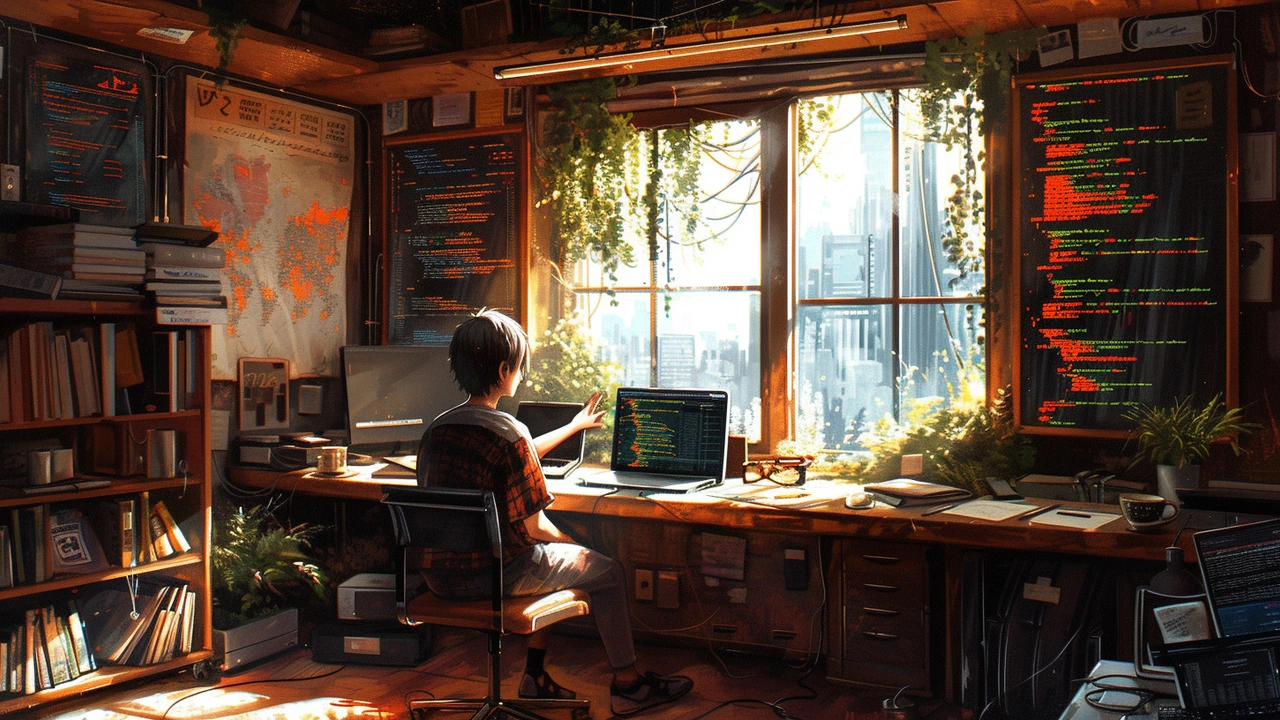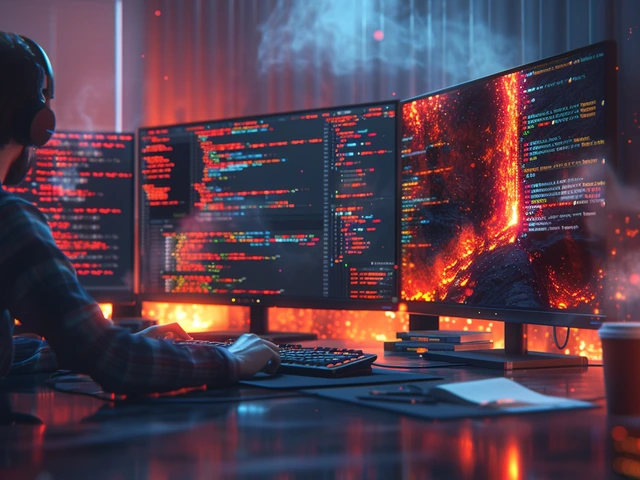Aug
29

- by Adrian Thompson
- 0 Comments
Getting Acquainted with Programming
If you're anything like me, dear reader, the thought of learning how to program may at first seem daunting. We’ve all seen the TV and movie depictions of programmers furiously typing away on keyboards illuminated only by the cool glow from their monitors, spewing out lines of incomprehensible code. Given my initial experience with coding, I had reason to believe that in my case, a colossal mental meltdown was imminent. But let me dispel those doubts – programming isn’t nearly as intimidating as it may first appear.
Like learning a new language or instrument, the key is understanding the basics first. Think about it. You wouldn’t start learning guitar by attempting to play a Jimi Hendrix solo straight away, would you? Similarly, you won't start programming by building a new Facebook. Start small, learn the basics, and then gradually build up to creating more complex programs. And remember, practice makes perfect!
Taking The First Steps with a Programming Language
But Adrian, you may wonder, where do I begin? The internet is a vast sea of information and sifting through the mountains of tutorials, courses, and educational platforms out there can be overwhelming. From my experience,…
In my early coding days, something I found incredibly useful was Python. Python is often recommended for beginners due to its simple, easy-to-read syntax. It's like the Fisher Price of programming languages - fun, educational, and not at all terrifying.
Oh, and here's a little fun fact - Python is named after Monty Python's Flying Circus comedy show, not the snake! I bet you didn't know that! Makes it seem a little less scary now, doesn't it?
Progressing To More Advanced Concepts
So you've gotten comfortable with the basics of a programming language, and you're feeling pretty chuffed with yourself (as you should be!). Now it's time to step up your game and challenge yourself with more advanced concepts.
You could start by exploring libraries in Python or delve into object-oriented programming. Object-oriented programming, or OOP for short, is a style of coding that groups related variables and functions together into 'objects'. This came absolutely handy when Lauren and I decided to reorganize our extensive collection of vinyl records digitally (yes, we're a bit old school like that!).
Building Your First Project
Learning to code can sometimes feel overwhelming. You're juggling new concepts, remembering syntax, and trying to understand the why's and how’s. But according to Lauren, my most salient motto throughout my programming journey has always been, “Learn by doing”. She's not wrong.
Your first project might be tiny and full of simple programs, but it will be yours. The first time I saw a program I wrote execute correctly, it felt like I was Neil Armstrong landing on the moon – One small step for a line of code, one giant leap for Adrian!
So start a project. It doesn’t matter how small. Make something that works, then make it better. Over time, these little improvements will add up, and before you know it, you'll look back in amazement at how far you've come.
Persevering Through The Challenges
The road to mastering programming is not always smooth. You will stumble, encounter roadblocks, and/or sometimes, even hit a dead end. Yet, it’s essential not to feel disheartened.
But remember, every successful developer you admire was once in the same boat as you. They too faced challenges in their early programming days but persevered through them. Learning to code can be stretching, but it’s always valuable.
On this note, I wish you the best of luck on your journey. Whether you're aiming to become a top-tier coder or just dipping your toes in the waters of programming, always remember that the only limit is the one you set for yourself. Now, time to get coding!






Write a comment